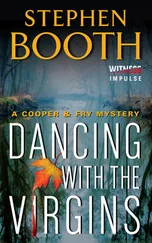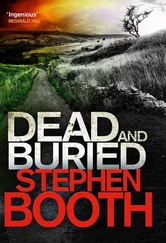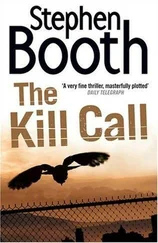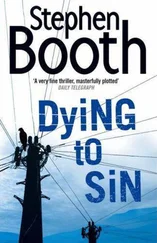Emma had been nineteen when she disappeared, and the guidelines said that immediate enquiries should be made in the case of a missing female under twenty-one. They were considered vulnerable, and, if they went missing, statistically more likely to have been the victim of a crime.
So the police officer in Smethwick who had taken the case had followed the proper procedures. Mostly. He had enquired whether Emma had done anything similar previously, and had checked the information her parents had given him against the missing person files. He had confirmed that Emma wasn’t involved in current criminal proceedings, in case she had left home to avoid prosecution for something her parents didn’t know about. He had collected all the identifying details. He had recorded her full name, age, address and description, along with the two photographs provided by the Renshaws.
‘But if Emma was going home by train, how was she planning to get to the railway station?’ said Fry.
‘By taxi – or so she told her housemates. West Midlands were unable to trace any taxi driver who picked her up from the house at Darlaston Road, or anywhere nearby. Nor was there a booking for that area where the passenger failed to appear. But I suppose she might have hailed a cab in the street.’
‘It’s unlikely, in that neighbourhood.’
Hitchens nodded. ‘But West Midlands checked that, too.’
‘I wonder why Neil Granger didn’t offer to give her a lift to the station, if he had a car?’
‘He said it was because he was already late for work, and he was afraid of getting in trouble. And Emma assured him she didn’t need a lift.’
‘So he said.’
Fry turned back to the reports. Enquiries had been made at several pubs and clubs that Emma had been known to visit. Friends and classmates had been spoken to. The university had no indication that Emma had been having problems with her work, or emotional or financial difficulties, or had any intention of leaving the course. There was a note on the bottom of the officer’s report that the parents of the missing person had agreed to any publicity.
It looked fairly comprehensive, at first glance. There was certainly a shortage of leads for West Midlands to have followed up, but all the usual enquiries had been gone through. No one had been able to suggest any reason why Emma should have decided to disappear, or anything she might have been worried about. No one had any idea where she might have gone – except back home to Withens.
‘So we need to talk to all the housemates again,’ said Hitchens. ‘Alex Dearden lives and works here, in Edendale. Neil Granger moved out of Withens, too, but not very far – he’s a few miles further down the Longdendale valley, in Tintwistle. Debbie Stark, I’m afraid, is still in the West Midlands. She got herself a job there after she graduated.’
‘Well, they could have scattered a lot further than that,’ said Fry. ‘So we should think ourselves lucky.’
But to Fry’s critical eye, the West Midlands reports had something missing. There seemed to be no air of urgency to them. Enquiries had taken place over a long period – several weeks, in fact. It was as if the officer assigned the case had been fitting it in between other jobs, when it was most convenient. And there was no mention of assistance being brought in from the local CID. No detective’s name was appended to any of the enquiry reports.
It didn’t really surprise her. In a huge metropolitan area, thousands of people were reported missing every year. Some priority was supposed to be given to women under twenty-one, but how many of those were there? And how many children and young people, too? The children were the biggest priority of all when it came to missing persons. Given a CID team already stretched to the limit by multiple murder cases, violent crime and drug problems, burglaries and car theft, how much attention could Emma Renshaw have expected, when there was no evidence that a crime had been committed?
Fry had been in that situation herself. She had worked in one of those CID offices. She guessed the officer had tried his best. But in the end, his sense of relief almost rose off the page as he concluded that the facts pointed towards Emma Renshaw having left the West Midlands, just as she had been supposed to do. He had passed the problem back to Derbyshire.
Fry shook her head, not sure whether she was puzzled, or whether she was trying to shake off the feeling that had been creeping up on her ever since she had taken the evidence bag in her hands.
‘You know, it’s all too vague, sir,’ she said. ‘It seems to me that none of Emma Renshaw’s housemates was bothered enough about her to make quite sure that Emma could get to the station all right on her own. They think she was getting a taxi, but they don’t know when, or where or how, or what taxi firm was coming to pick her up. And no one actually saw her leave the house.’
Hitchens shrugged. ‘Well, that’s the way it is, Diane. You know it happens all the time. People just disappear through the cracks.’
She nodded. Hitchens was right, of course. Throughout the country, teenagers went missing all the time, and were never seen again. But Emma Renshaw had last been seen in Bearwood, in the Black Country, no more than a mile or two from her own childhood home. That made a difference.
‘And we have to consider the other possibility …’ said Hitchens.
‘Sir?’
‘The possibility that Emma Renshaw may have lied to everyone – her parents, her friends and her housemates. She may never have intended coming home at all.’
‘Of course.’
Fry looked at the railway timetable attached to the reports. Emma had been due to catch a train from Birmingham New Street station a few minutes before eleven o’clock on the morning of Thursday, 12 April. Virgin Trains should have taken her to Manchester Piccadilly, where she would have had a quarter of an hour to change platforms and transfer to a local train. She had been expected to arrive at Glossop station at twenty past one, and her parents, Howard and Sarah Renshaw, had been waiting to collect her. But Emma hadn’t got off the train. The Renshaws had tried to call her mobile phone, but had got only the message service. So they had waited for the next train from Manchester. And the next.
The schedule filled Fry with a sense of despair. No wonder the West Midlands officer had been glad to get the case off his desk. If Emma Renshaw had left the house in Darlaston Road as planned, there were two possibilities. Either she had disappeared in Birmingham, and had never made it to the train at all. Or she had vanished when she changed trains in Manchester.
Fry was looking at the names of two of the largest metropolitan areas in Britain, cities where a girl of nineteen could melt away so easily. A change of identity, and her family would never see her again, if she didn’t want them to. Fry knew that all too well.
On the other hand, the evidence bag that she was holding contained a Motorola Talkabout with a bright blue inlay over the keys – a phone which Vodafone said had belonged to Emma Renshaw. Without a group of ramblers deciding it was time for a spring clean, the phone might have lain undiscovered for ever. If one of those ramblers hadn’t been the mum of a teenager whose mobile phone had been stolen by muggers, it would have been sent to the council tip with the rest of the rubbish. And if it hadn’t been for the police officer at Chapel-en-le-Frith who had taken the time and trouble to trace the owner of the phone, no one would ever have thought of submitting it for forensic examination.
But that’s what they had done, and the result was in Fry’s hands. Down the right side of the phone, the blue inlay was streaked with the dried residue of a dark brown liquid that had glued up the keys and trickled into the little hole where the lead for the re-charger should fit. According to the label on the bag, the stains had been confirmed as human blood.
Читать дальше












